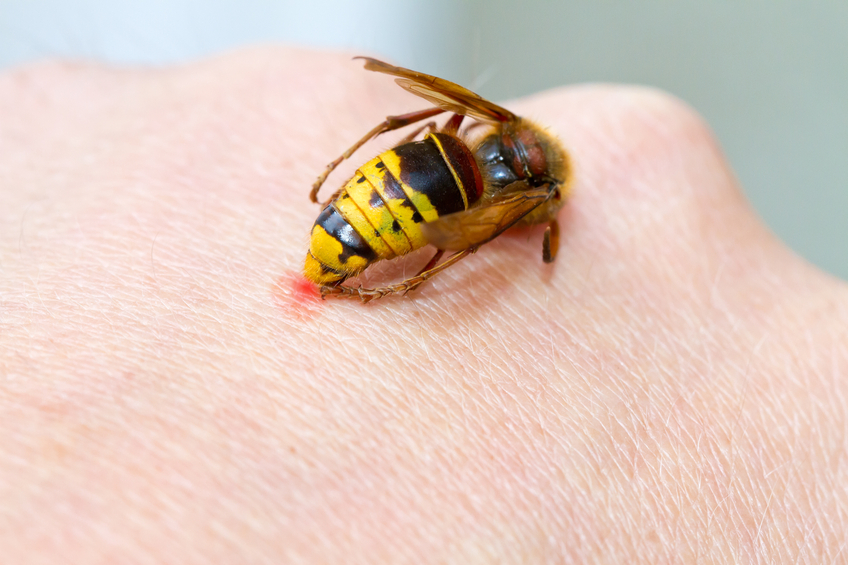If the news about the drastic hike in the cost of Epi-pens (epinephrine auto-injectors) in the United States hasn’t got you thinking about allergic reactions, trying to enjoy a meal outdoors this time of year will certainly have you stocking the medicine cabinet with antihistamines in case of a wasp sting.
Allergic reactions are unpredictable but it is estimated about three in 100 healthy adults will have an allergy to insect stings or bites. Most people will have a mild reaction to a sting with pain at the sting site and swelling that will disappear within a few hours. More moderate reactions will include extreme redness and swelling than enlarges over the following day or two but usually resolves itself in between 5 and 10 days. And multiple stings can result in a medical emergency for older adults and those with heart or breathing problems.
If reactions become stronger with each sting, talk with your doctor about treatment and prevention. A severe allergic reaction can be life-threatening and should be treated as an emergency. Those who have had a severe reaction in the past are 30 to 60 per cent more likely to suffer anaphylaxis the next time they are stung. Immunotherapy can be discussed with your doctor or allergist to prevent such a reaction in the future.
Signs of Anaphylaxis:
- Skin reactions including hives, itching and flushed or pale skin
- Difficulty breathing
- Swelling of the throat and tongue
- Weak, rapid pulse
- Nausea, vomiting or diarrhea
- Dizziness or raining
- Loss of Consciousness
Source: Mayo Clinic
If you or a loved-one experience these symptoms, call for emergency services or if prescribed an Epi-pen, use it right away as directed.
To prevent stings:
- If eating outdoor, keep food covered until being eaten, especially soft drinks and ripe fruit.
- Keep all garbage tightly sealed outdoors.
- Avoid wearing perfume, hair spray and other scented cosmetics that may attract insects.
- Avoid brightly colored, black or loose clothing and flowery prints that can attract insects.
- Pick any ripe fruits immediately and removed any spoiled fruit that has fallen.
Use a professional exterminator to remove a nest if you are allergic; if destroying a nest yourself, treat the nest in the evening when most of the insects have returned home. Spray from a distance, repeating if necessary.






Add Your Voice
0 Comments
Join the Discussion